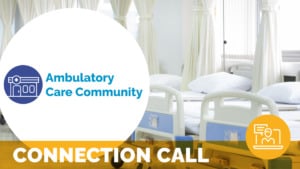Readmissions in the Era of Patient Engagement

With the growing focus and attention on patient centered care, patients increasingly express a desire to be involved in their care and want to take an active role in their medical decision-making. However, the patient centered approach has not been widely adapted into strategies for reducing hospital readmissions despite extensive efforts from medical administrators, physicians and nurses to reduce readmissions.The goal of this study was to interview all patients readmitted within 30 days to general medicine and cardiology services, in order to illuminate patient-identified events, experiences or perceptions that are associated with more frequent and/or more preventable hospital readmissions.
Related content
-
 Patient Family & Community Engagement | Staff & Provider Engagement
Patient Family & Community Engagement | Staff & Provider EngagementBuilding Cognitive-Based Compassion into Service Recovery Training
2pm ET / 1pm CT / 12pm MT / 11am PT – Traditional service recovery training often focuses on key principles and de-escalation techniques, leaving learners with theoretical knowledge but lacking practical implementation skills. In response to rising workplace violence and increasing complaints, we redesigned our service recovery training to incorporate cognitive-based compassion training. This
Learn more -
 Patient Family & Community Engagement
Patient Family & Community EngagementEscuchame: A Story of Patient Resilience
This article is a narrative following a patient’s experience through the American Healthcare system. This article is written by a second-year medical student. During this time the individual repeatedly engaged in different specialties of medicine such as neurology, neurosurgery, oncology, emergency medicine, gynecology, and primary care. This narrative demonstrates how certain issues such as healthcare
Learn more -
 Culture & Leadership | Patient Family & Community Engagement
Culture & Leadership | Patient Family & Community EngagementAmbulatory Care Community Connection Call – Rounding Best Practices
2:00pm ET / 1:00pm CT / 12:00pm MT / 11:00am PT – While rounding is a well-established practice in acute care, ambulatory leaders continue to voice the need for similar approaches in outpatient settings. Rounding, whether with patients, staff, or both, can play a vital role in improving communication, engagement, and overall experience. Join the
Learn more
